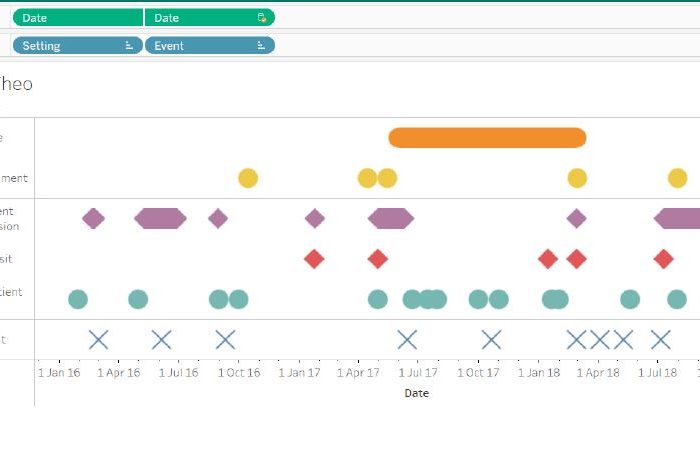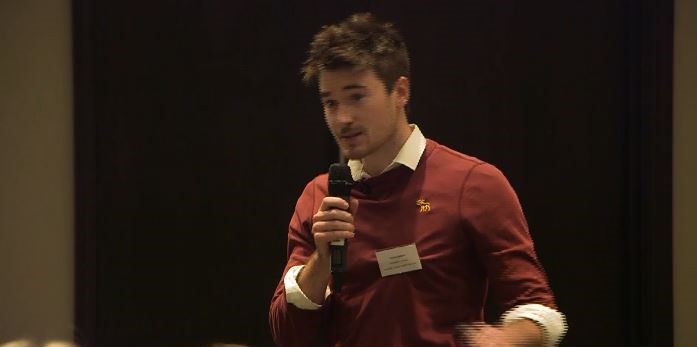By Arif Shah and Jacob Oguntimehin

The Networked Data Lab (NDL), funded by The Health Foundation, is a community of data professionals looking to solve the UK’s most pressing health care challenges since COVID-19. Imperial College Health Partners (ICHP), Imperial College London and the Institute of Global Health Innovation were named as the North West London NDL. This is one of five NDLs around the UK, to carry out data analysis on various topics based on local priorities, which were determined through community engagement and by the Health Foundation. Health care data is often fragmented, making reliable analysis difficult, but in North West London we have access to a depersonalised linked data set, via Discover-NOW, covering a diverse population of over 2.5 million. This has been the platform for our research.
The second topic for analysis was children and young people’s mental health and access to care was impacted by the COVID-19 pandemic. Arif, one of the 20 young people who attended the first public involvement workshop in May 2021, tells us about his experience of being involved and why he then ended up joining the project’s Young Person’s Advisory Group. You can read more about the workshop here.
I saw an advert for the workshop in communications from a youth charity I’m part of. I thought it sounded like an interesting workshop because it was about coming up with priorities for research around young people’s mental health, which could then improve care. I wanted to represent my views as a young person with experience of mental health difficulties and to try to make a difference for other young people going through something similar.
I think it’s so important to involve young people in projects like this – we should have a say in how services, which support us, run.
More young people need mental health support than ever before, and services are struggling with increased demand – something needs to change. Who better to suggest changes than the people who have experienced the services and have ideas about what could make them better. We bring our own experiences and skills that are different to researchers and healthcare professionals. We can help unlock answers to issues that professionals might not have thought about.
After the workshop, we were asked if we wanted to apply to be part of the Young Person’s Advisory Group, to oversee the project from a young person perspective, which I was pleased to join. My role was to advocate the views of young people in the work and outputs and to make sense of the data. For example, we were presented the initial findings from the analysis of the data and then suggested areas that we thought would be interesting to explore further. The data analysts presented the different findings in a number of graphs and talked us through the significance of each. One of the findings was around how young women in North West London have been accessing more mental health services since COVID-19 and receiving more diagnosis and treatment than young men. However, when we discussed this in the group, we thought that it didn’t necessarily mean young men were not experiencing as many mental health difficulties as young women, but maybe young men were less likely to seek help. Having us look at the results, helped the analysts see that the results might not be showing the whole picture.
I also reviewed The Health Foundation’s national policy paper to make sure that the results were clear. The paper recommends that three key areas need urgent investigation, to help ensure children and young people universally get the care they need. These are, understanding:
- The rapid increases in mental health prescribing and support provided by GPs
- The prevalence of mental health problems among adolescent girls and young women
- The stark socioeconomic inequalities across the UK
One key thing that stood out to me was the increase in prescribing medication to treat young people, that didn’t match an increase in other kinds of treatment. I think we need to understand why this is happening. To me, this suggests there are limited options for GPs to progress mental health support in other ways.
Being part of this project, I’ve learned that implementing effective improvements is a long process and it cannot happen instantly.
It takes time and resource. But I can’t wait to see the impact the results of the NDL will have on services and young people. I think the YPAG could help with ensuring the results are implemented, by meeting with some of the leaders, to help ensure they act on change. Having a young person at the table helps to add a face to the people who have been experiencing worsened mental health since COVID-19 and difficulty accessing services. We could share the results with our networks and empower young people to advocate to decision-makers about what needs to change, to urgently tackle this mental health crisis.
I would definitely recommend that young people get involved in projects like this. Not only can you gain valuable professional experience, but you can get involved in improving problems that might otherwise be overlooked. The amount of time we had to dedicate was manageable around my work commitments. And, I liked that there were Mental Health First Aiders as part of the team, in case any of us wanted to have a debrief after a meeting.
In terms of what could have been done differently around our involvement; I think it would have been useful to have more consistent communication and a stable point of contact. There were a lot of changes in staff, so we had three different Public Involvement Leads as our main point of contact, which got a bit confusing. Now that I am involved in a few projects, I think it would be really useful to be sent a brief summary of what has happened so far, to keep me up to speed and to keep the project front of mind.
If other researchers are looking to involve young people in their work, I would suggest to:
- Have a clear idea of the time commitment that the young people would need to dedicate to the project and how often they would meet
- Send clear and concise information with enough notice before a meeting
- Involve people in the late afternoons or evening after work e.g. 4.30-7pm or in lunch breaks
- Potentially, set up a WhatsApp group that could be useful to send reminders and get the group to work well as a team
If you are aged 16-25 and are looking to get involved in a project like Arif, sign up to Imperial College London’s Young Person’s Advisory Network.



